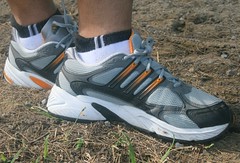Definition
Scurvy is a condition caused by a lack of vitamin C (ascorbic acid) in the diet. Signs of scurvy include tiredness, muscle weakness, joint and muscle aches, a rash on the legs, and bleeding gums. In the past, scurvy was common among sailors and other people deprived of fresh fruits and vegetables for long periods of time.
Description
Scurvy is very rare in countries where fresh fruits and vegetables are readily available and where processed foods have vitamin C added. Vitamin C is an important antioxidant vitamin involved in the development of connective tissues, lipid and vitamin metabolism, biosynthesis of neurotransmitters, immune function, and wound healing. It is found in fruits, especially citrus fruits like oranges, lemons, and grapefruit, and in green leafy vegetables like broccoli and spinach. In adults, it may take several months of vitamin C deficiency before symptoms of scurvy develop.
Currently, the recommended dietary allowance (RDA) for vitamin C is 50-60 mg/day for adults; 35 mg/day for infants; 40-45 mg/day for children 1-14; 70 mg/day during pregnancy; and 90-95 mg/day during lactation. The body's need for vitamin C increases when a person is under stress, smoking, or taking certain medications.
Causes and symptoms
A lack of vitamin C in the diet is the primary cause of scurvy. This can occur in people on very restricted diets, who are under extreme physiological stress (for example, during an infection or after an injury), and in chronic alcoholics. Infants can develop scurvy if they are weaned from breast milk and switched to cow's milk without an additional supplement of vitamin C. Babies of mothers who took extremely high doses of vitamin C during pregnancy can develop infantile scurvy. In children, the deficiency can cause painful swelling of the legs along with fever, diarrhea, and vomiting. In adults, early signs of scurvy include feeling weak, tired, and achy. The appearance of tiny red blood-blisters to larger purplish blotches on the skin of the legs is a common symptom. Wound healing may be delayed and scars that had healed may start to break down. The gums swell and bleed easily, eventually leading to loosened teeth. Muscle and joint pain may also occur.
Diagnosis
Scurvy is often diagnosed based on the symptoms present. A dietary history showing little or no fresh fruits or vegetables are eaten may help to diagnose vitamin C deficiency. A blood test can also be used to check the level of ascorbic acid in the body.
Treatment
Adult treatment is usually 300-1,000 mg of ascorbic acid per day. Infants should be treated with 50 mg of ascorbic acid up to four times per day.
Prognosis
Treatment with vitamin C is usually successful, if the deficiency is recognized early enough. Left untreated, the condition can cause death.
Prevention
Eating foods rich in vitamin C every day prevents scurvy. A supplement containing the RDA of vitamin C will also prevent a deficiency. Infants who are being weaned from breast milk to cow's milk need a supplement containing vitamin C.
